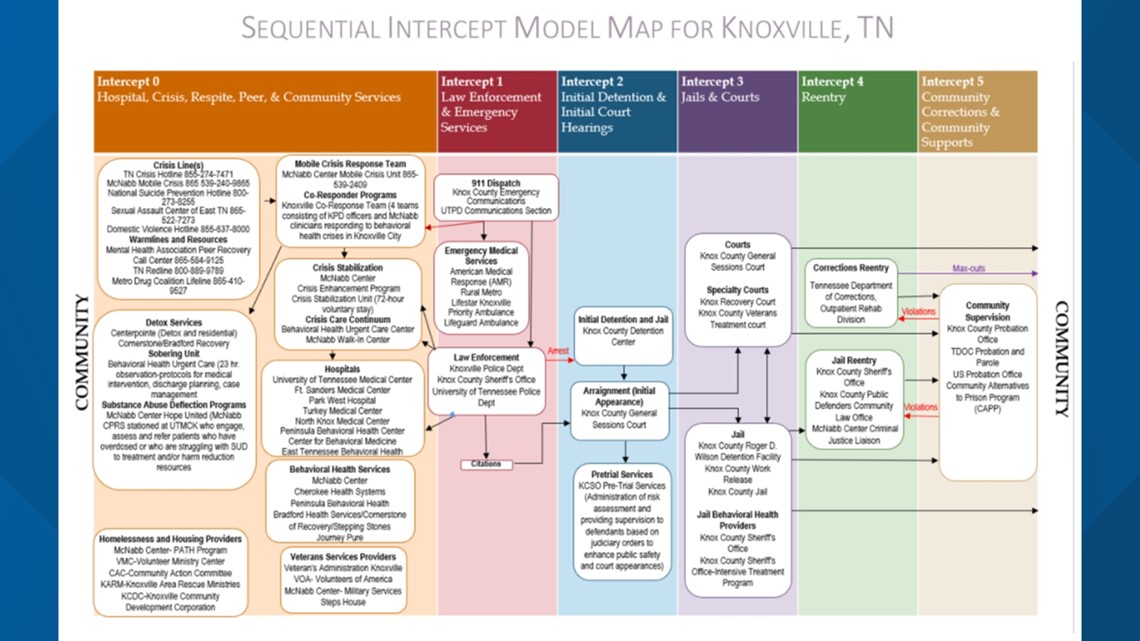KNOXVILLE, Tenn. — On Thursday, leaders from Knoxville and Knox County met to discuss possible solutions to provide people with more mental health resources.
The meeting comes after a report was released that details opportunities for leaders to connect people with resources as they went through the criminal justice system. It was named the "Sequential Intercept Model" report. It used SIM mapping to illustrate how people with behavioral health needs come into contact with the criminal justice system and flow through it.
By looking at how they flow through the system, leaders can find opportunities to link them to services and prevent them from entering the criminal justice system again.
"My family is not immune," said Ben Harrington, who attended the meeting. "I have a parent with a mental health condition."
He has worked in the nonprofit sector for around 29 years, advocating for better mental health access. He said that Knoxville and Knox County have limited resources for people in need.


A previous report from Knox County showed that the top three reasons people don't get the help they need are a lack of transportation access, a lack of knowledge of available services and a lack of available resources.
"A mom with a teenage daughter contacted me and literally proclaimed Knoxville to be a child psychiatry desert, and she has to take her child to Nashville," said Harrington.
The joint meeting on Thursday aimed to close those gaps. Leaders discussed ways to serve people without insurance and hire more people at hospitals. They also discussed ways to improve the number of staffed beds at facilities.
"This is probably one of the biggest issues we have here," said Kyle Ward, a Knox County commissioner. "We need a mental health and drug rehabilitation hospital here in Knoxville."
Tennessee leaders said they help more people with mental health issues now compared to when Knoxville's mental health hospital was open. In 2011, the Lakeshore Mental Health Institute helped around 2,200 people. In 2023, the state said 2,800 received mental health services.
Knoxville leaders said without state funding, they can't build off a foundation already in place to provide better mental health resources. They said they have ways to add treatment beds, create options for long-term care and get help for caregivers. What they don't have is a way to pay for it.

